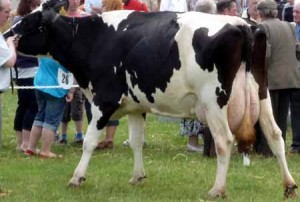As the demand for meat rises inexorably, Anna Rose explains why this doesn’t have to be the case.
Highlighted by the media and abundant cookery programmes on TV, people are becoming more and more aware of what they eat and what their food contains in terms of ingredients and nutrients. As well as the focus on nutrition through the ‘5-a-day’ fruit/vegetable campaign, another nutrient that always remains focal is protein.
Protein is essential to the human body for development, growth and general body maintenance – including the production of blood cells. The main source of protein for the majority of humans is through the consumption of meat.
However, since the ‘horse meat scandal’ broke in the news, I have had quite a few conversations with people who are debating whether to reduce their meat intake or who are investigating/ contemplating adopting a meat-free lifestyle. The main question I am asked – as I’m sure other vegetarians do too – is how do I ensure I get sufficient protein in my diet with the omission of meat?
In reality, protein is present in so many food sources that reliance on meat being a primary provision of protein isn’t entirely necessary.
If you are looking for alternative protein foods, here are some to consider, many of which already feature in most people’s diets:
- Dairy products (including milk, cheese, yoghurt etc) – are a great source of protein with the added benefits of calcium and vitamins A and B12.
- Eggs are also an excellent source of protein which also boast a wealth of B vitamins and can be cooked and eaten in so many ways.
- Pulses (including lentils, beans, chickpeas etc) are synonymous with a vegetarian diet and in addition to its protein benefits; they are low in fat and contain vitamins and fibre.
- Nuts and seeds are full of protein although do possess a high fat content. Protein packed nuts include: almonds, cashews, peanuts and walnuts. High in protein seeds include: sunflower, pumpkin and sesame. Nutty spreads such as peanut butter contain good levels of protein and provide a delicious alternative to eating nuts raw/whole.
- Mock-meat options are now on sale in all mainstream supermarkets and are perfect for vegetarian versions of tea-time favourites such as chilli con carne or sausage bakes. Mock-steaks make for great Sunday roast substitutes and are perfect for barbeques. They come in varying forms such as mycoprotein (eg: Quorn brand), tofu and tempeh and some emulate the style of meat products eg: sausages, steaks, fillets, bacon rashers, fish etc. Brands such as Quorn or Linda McCartney Foods hold the lion-share of the market place for such products.
- Whole grains such as barley, brown rice and quinoa (similar to cous cous) are also high in protein. Quinoa especially so, as one cup of cooked quinoa contains approximately 18g of protein – great served with iron boosting leafy vegetables such as spinach.
Combinations of the above increase the potential for protein intake beyond the carnivorous arena of meat – whether you are after a protein packed main course or a quick protein snack, the options are endless.
So, add some new items to the shopping list get the stove warmed up and experiment with grains, beans and mock-meat alternatives for delicious meat-free meals which will bring variety to the dining table and a new culinary trend of no-meat and two veg!
Note that the references to protein intake are from personal knowledge/experience with some internet verification. Food sources possess varying protein levels. To gain a full nutritional review or advice, please seek guidance from a nutritionist and/or medical professional. A further suggested point of reference would be via: www.vegsoc.org.
Anna Rose blogs at www.wordinvegways.blogspot.com
Facebook: Word In Veg Ways (Vegetarian Blog)
Twitter: @wordinvegways
